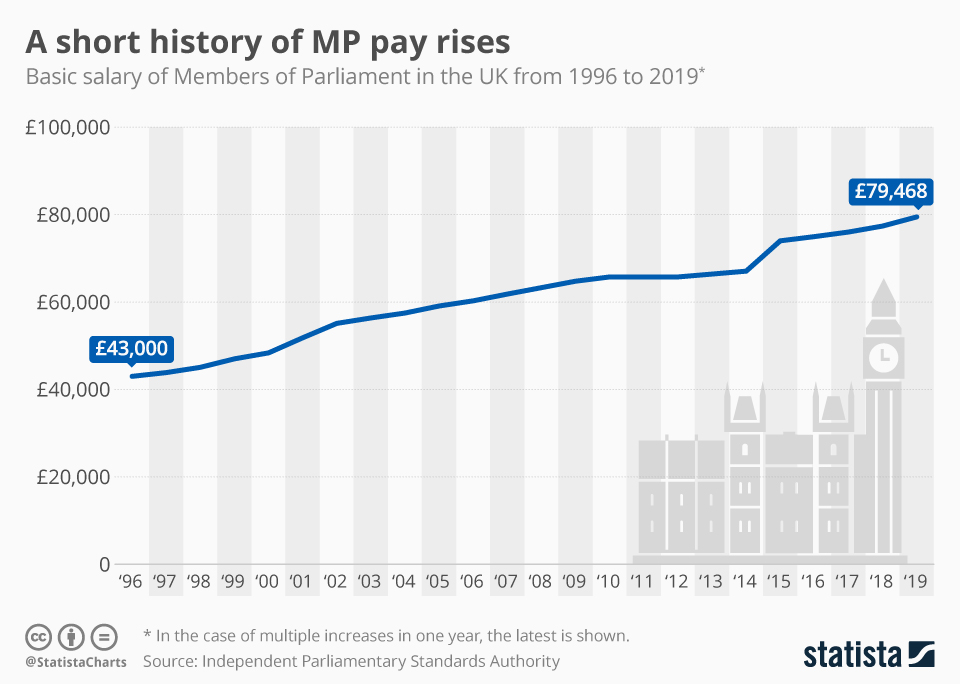Members of Parliament have been handed eight pay rises in the last ten years – while nurses have seen their average salary slashed by more than 7 per cent across the decade.
Since the Independent Parliamentary Standards Authority (IPSA) took control of MPs’ pay in 2010, salaries have been linked to average changes in public sector pay.
In 2010, an MP’s annual salary was £65,738. It stayed at the same level until 2013 – when it rose to £66,396. It has climbed steadily since then and, in April this year, was hiked by an inflation-busting 3.1 per cent – meaning MPs now earn £81,932 per year.
The likes of Yvette Cooper or Jeremy Hunt – who chair select committees – earn an additional £16,422 each year on top of their standard salary.
Announcing the changes earlier this year, Richard Lloyd – the interim chair of IPSA – said that the salary spike would pay for “staff training and welfare, security and changes to the salary bands and job descriptions for MPs’ staff to bring them into line with the jobs they actually do.”

Nurses and teachers suffer
While there have been real-terms increases in nurses’ pay in recent years but, according to fact checking charity FullFact, they haven’t balanced out the real-terms decreases that took place in the early and mid-2010s.
Average pay for all nurses – regardless of which salary category they fall into – has fallen by 7.4 per cent since the year ending August 2010, when the NHS started publishing such statistics.
All newly-qualified nurses start at Band 5 – which pays £24,907 per year. The Band 5 starting salary has increased by 6.7 per cent since 2017/18 but – since 2010/11 – has fallen by a total of 3.2 per cent, FullFact said.
A survey by the Organisation for Economic Co-operation and Development (OECD) in 2017 found that teachers’ salaries in England had plummeted by more than a tenth in the last decades – despite earnings rising in comparable countries.
Last month the Department for Education announced that salaries for new teachers are set to rise to £26,000 this autumn, as the government tries to stem the tide leaving the profession. It has pledged to raise teaching starting salaries to £30,000 by 2022-23.
The latest report by the OECD found that statutory salaries for teachers in England and Scotland are yet to recover to “pre-Great Recession highs”.
Salaries in England in 2018 were 10 per cent lower than in 2005, and 3 per cent lower in Scotland – despite the UK being one of the few countries seeing class sizes rise at the same time.

